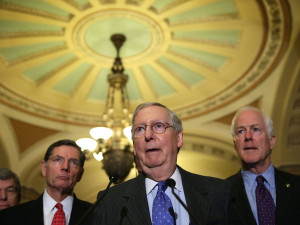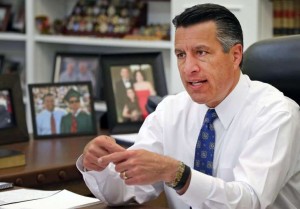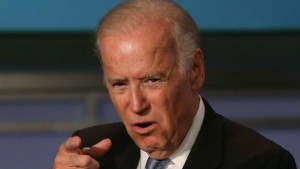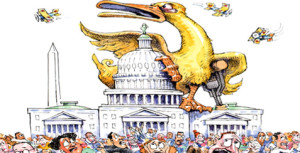
I remain strongly in support of presidential prerogative.
It’s been one of my core beliefs ever since I started thinking seriously about policy, politics and government.
When I read stories over the past few days about how Senate Republicans plan to block President Obama’s pick for the U.S. Supreme Court — before even knowing who it is — it sends me into deep orbit.
The GOP is digging in. So is the White House.
In my view, the president’s constitutional authority should override the Senate’s role in this decision.
I’ll reiterate here something I hope hasn’t been lost on those who read this blog. My belief in presidential prerogative crosses party lines. This isn’t a partisan issue with me.
In 1991, Republican President George H.W. Bush nominated Clarence Thomas to the high court to replace Justice Thurgood Marshall. I stood behind the president on that pick while working for a newspaper in Beaumont. Did the president overstate Thomas’s qualifications for the court by calling the “most qualified man” he could find? Yes, he did.
But that was his call to make. George H.W. Bush was our president, who had been elected decisively in 1988. He earned the right to select someone with whom he felt comfortable. As for the allegations of sexual harassment that arose late in the confirmation process, well, I didn’t buy entirely into what was being alleged.
Four years earlier, President Ronald Reagan selected Robert Bork to the court. Was he the kind of jurist I would have picked? Heavens no! But that wasn’t my call to make. It belonged to the president. The Senate saw it differently and rejected Bork’s nomination to the court — despite Bork’s well-known brilliance and knowledge of constitutional law — on grounds that he would fundamentally reshape the direction of the Constitution.
The process worked as it was intended, even though I believed then as well in the principle of presidential prerogative.
Barack Obama is equally entitled — just as any of his predecessors have been — to put someone forward to sit on the nation’s highest judicial authority. The death of conservative icon Antonin Scalia has shocked us all. The court won’t stop functioning with only eight justices.
The larger problem, though, might lie in the Senate, where Democrats are vowing revenge if Republicans follow through with their threat to block the president’s court nominee from even getting a hearing.
The Senate could shut down. Government could stop. The upper congressional chamber could become a logjam of legislation approved by the House, which cannot become law over a dispute that Senate Republicans will have started.
For what purpose? To deny the president of the “other party” a chance to fulfill his constitutional duty, to which a majority of Americans entrusted to him twice with their votes.
Republicans want to wait for the next president to take office. They are gambling that the 45th president will be one of their own. It’s a risky gamble, though, that threatens to stymie everything else that their own constituents elected them to do — which is to govern.





